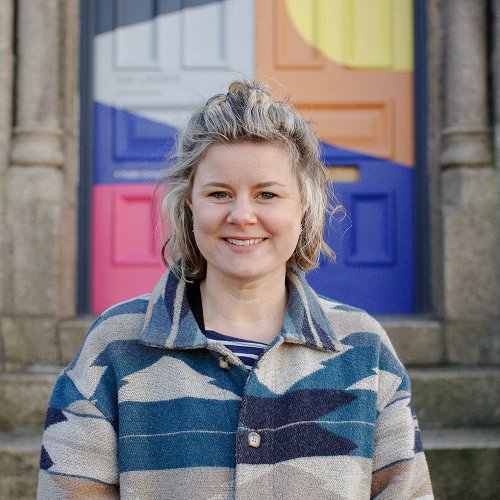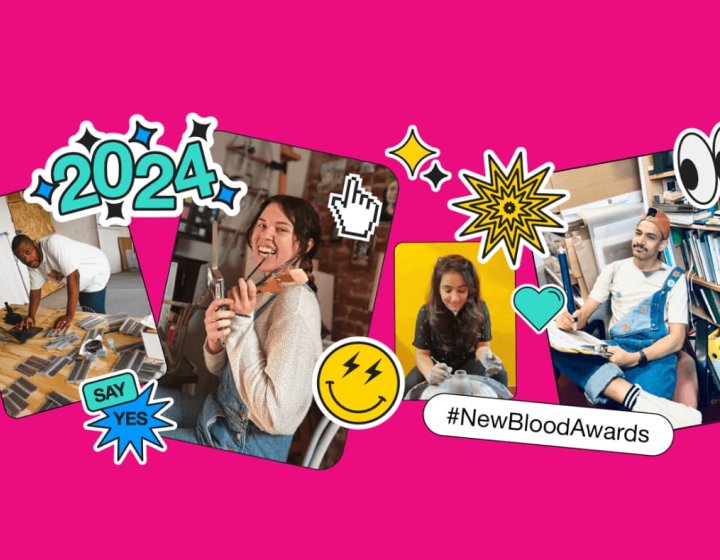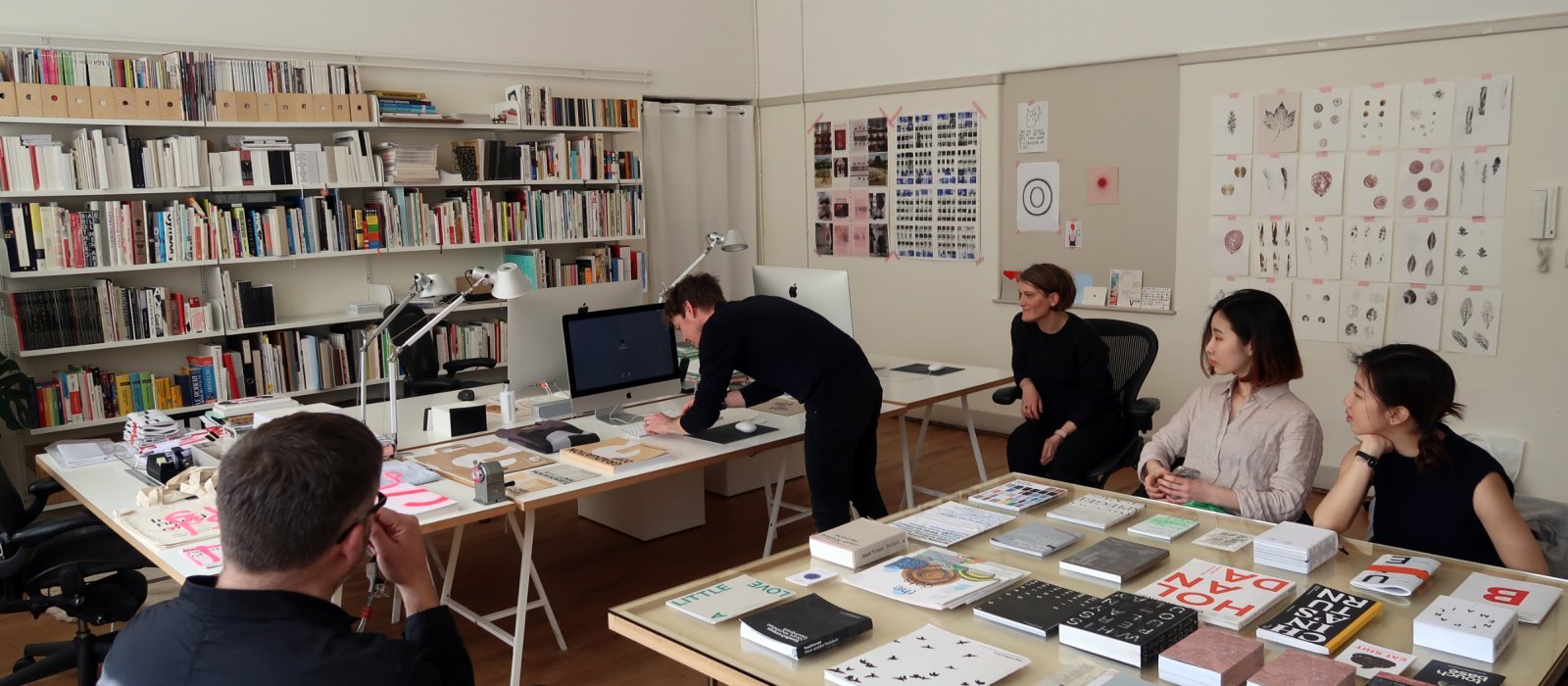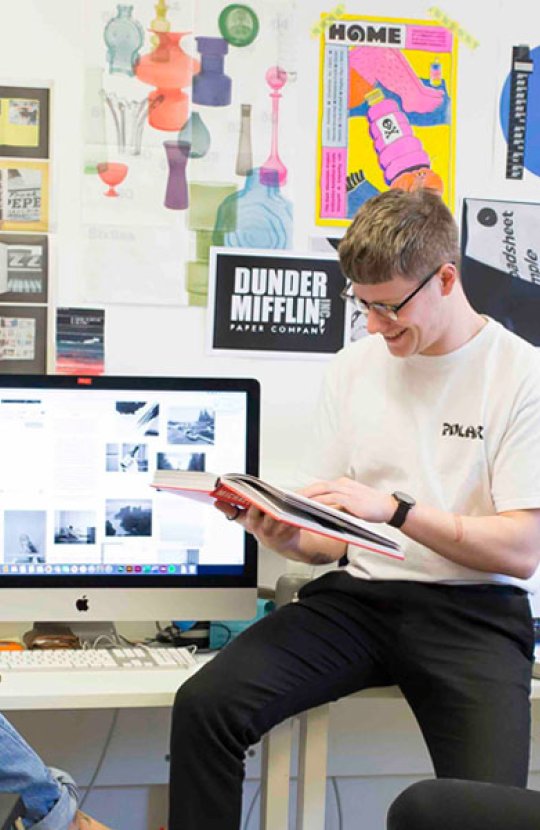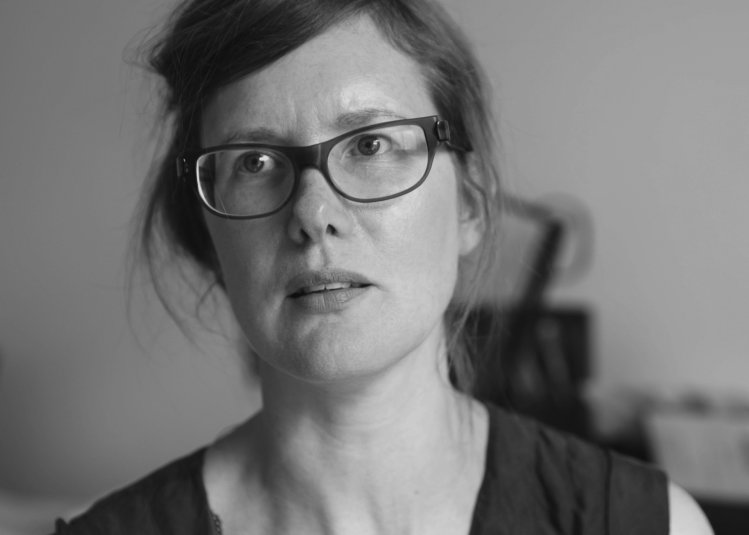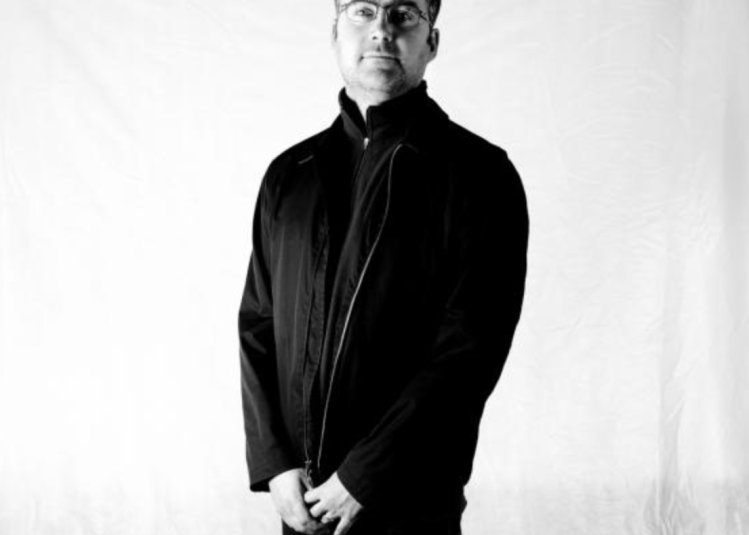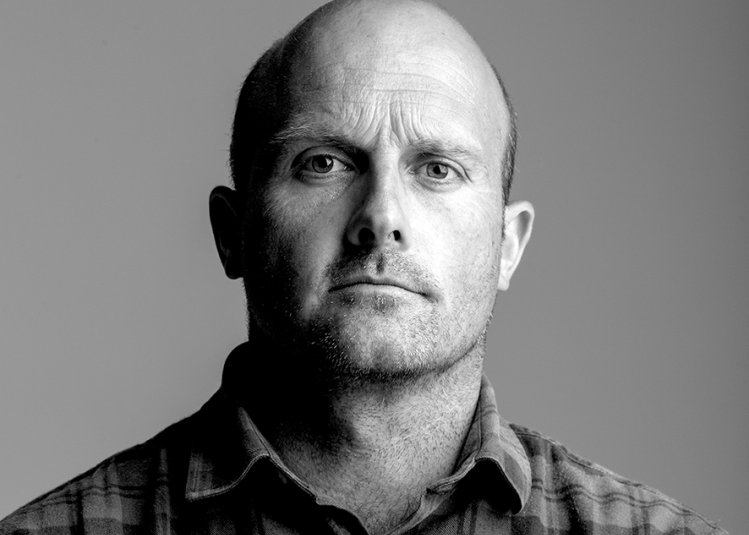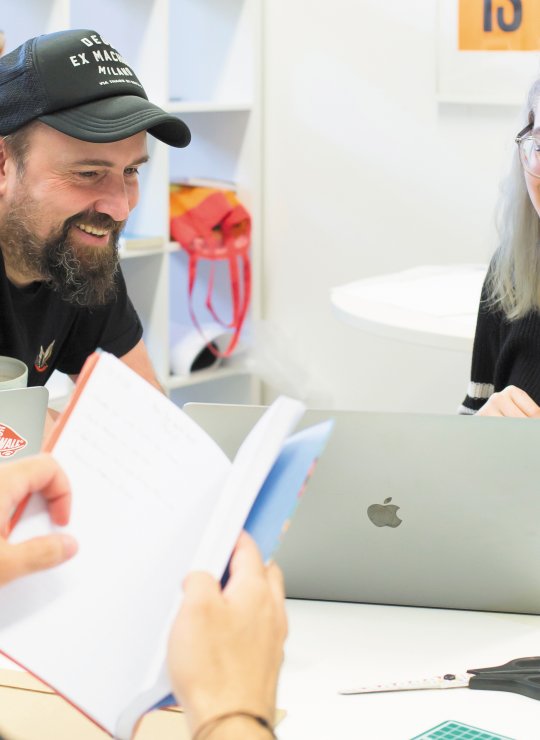
Communication Design MA
Hone your communication design skills for a rapidly changing world.
Course overview
Design thinking is an essential tool for understanding the world around us, and at a time of unprecedented environmental, political and technological change, the world needs brave creative thinkers now more than ever.
On this progressive master’s course, you’ll learn to build authentic and innovative solutions for positive change. Working both collaboratively and with individual focus, you’ll develop critical, theoretical and practice-based skills through experimental making, design challenges and research-orientated briefs.
Whether you’re looking to refresh your practice, change career direction or strengthen your skills, you’ll learn from design professionals and academics and emerge with a curious, empathetic and purposeful practice ready for a range of careers in the creative industries.
Why study at Falmouth?
- Learn from award-winning design professionals, visiting lecturers and provocative thinkers from around the world.
- Join an inclusive and multidisciplinary postgraduate community, where diverse perspectives and shared, diagnostic learning help define your creative practice.
- Experience real world insights into industry and emerging approaches to creative and experimental design through optional external studio visits, research trips and professional placements.
- Work in a dedicated studio on our subtropical Falmouth Campus.
Similar courses
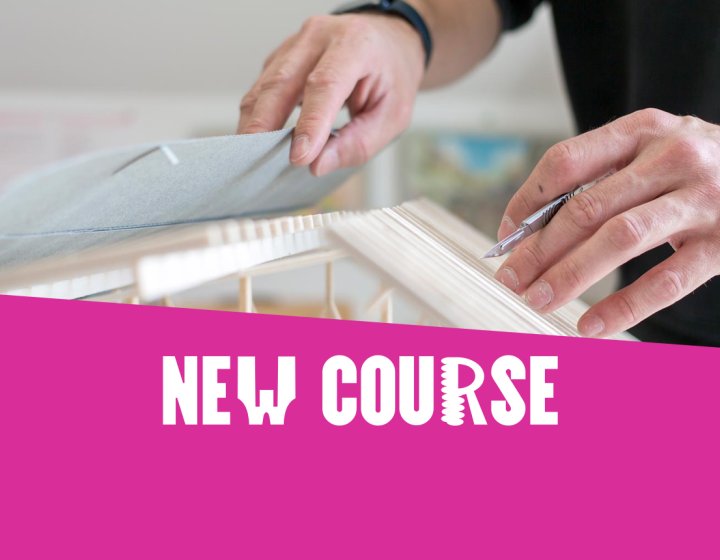
Spatial Design MA
Learn to design spaces that are responsible, ethical and responsive to real communities. ...
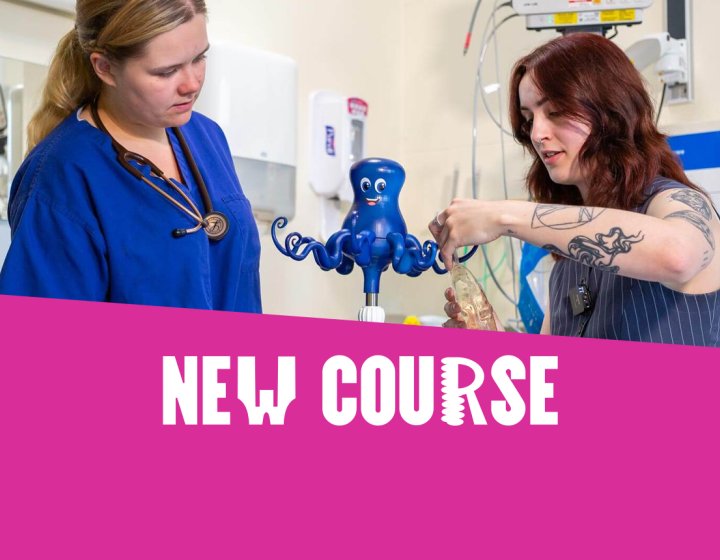
Design Innovation MSc
Challenge and shape the future of conscious, global design.
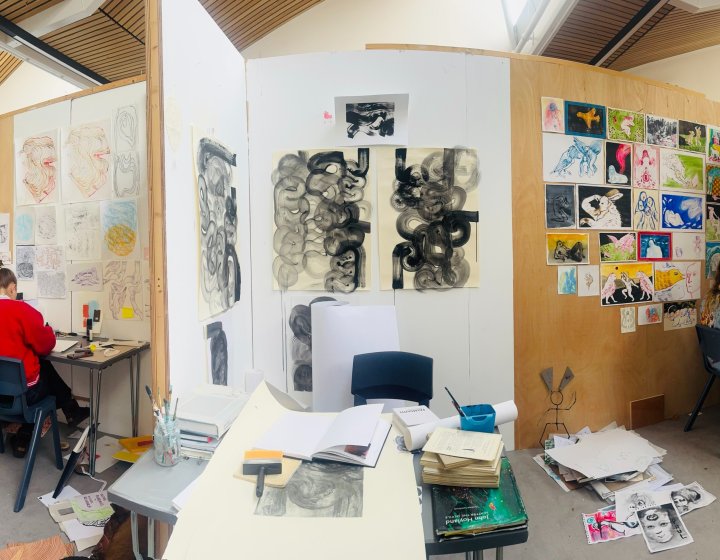
Fine Art MA
Refine your artistic practice through experimentation, innovation and applied research.

Sustainable Fashion MA (Online)
Become a conscious changemaker in the 21st century fashion industry. Position yourself as a catalyst...
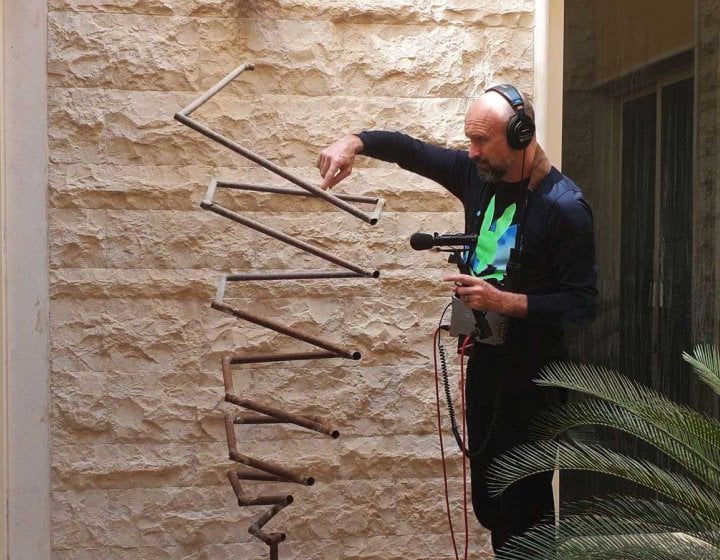
Fine Art MA (Online)
Tap into Falmouth’s renowned fine art expertise from your home and studio. You'll learn to build a...

User Experience Design MA (Online)
Learn how to apply key principles of user-centered design to create original work based on your own ...
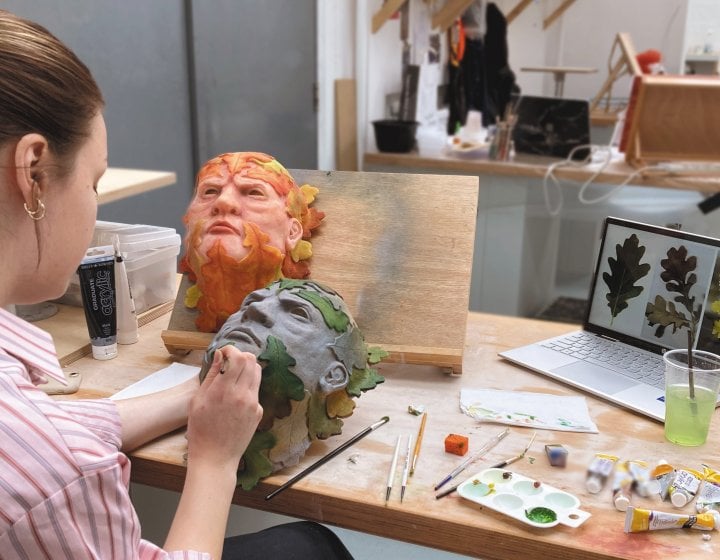
Prosthetic Effects MA
Launch your career in prosthetic effects with this unique course. Working hand-in-hand with world-cl...
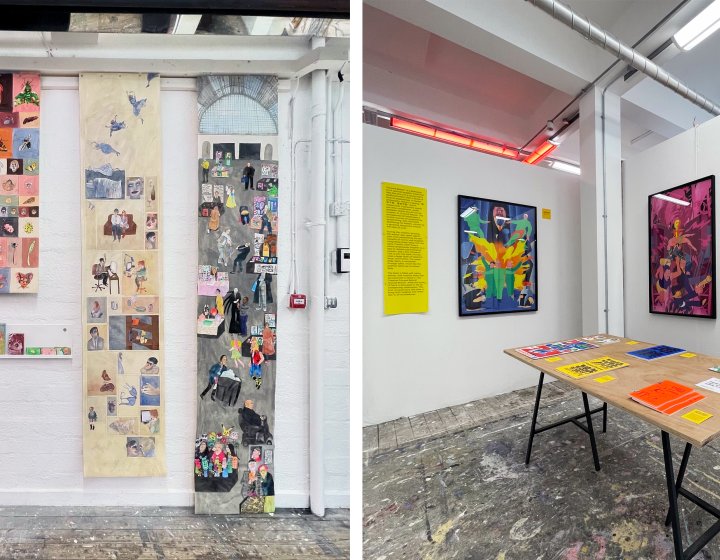
Illustration: Authorial Practice MA
Develop your unique visual language on this studio-based Illustration MA. You’ll learn to see your...
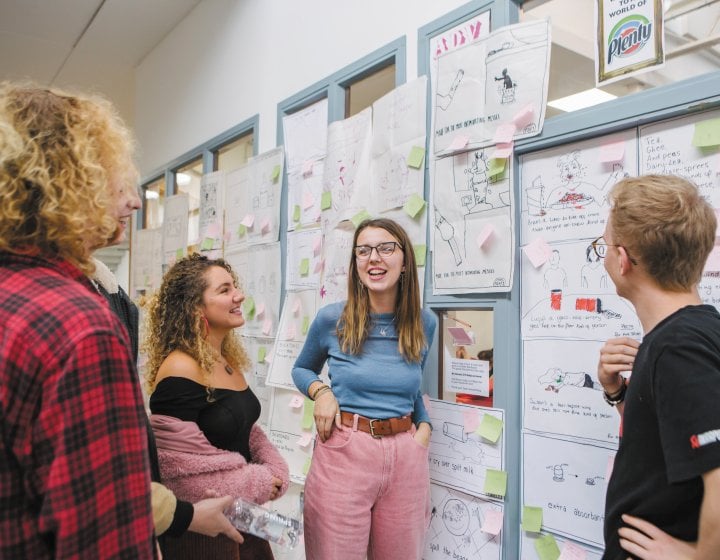
Creative Advertising MA
Master the contemporary craft of advertising. On this innovative master's course, you’ll ente...
